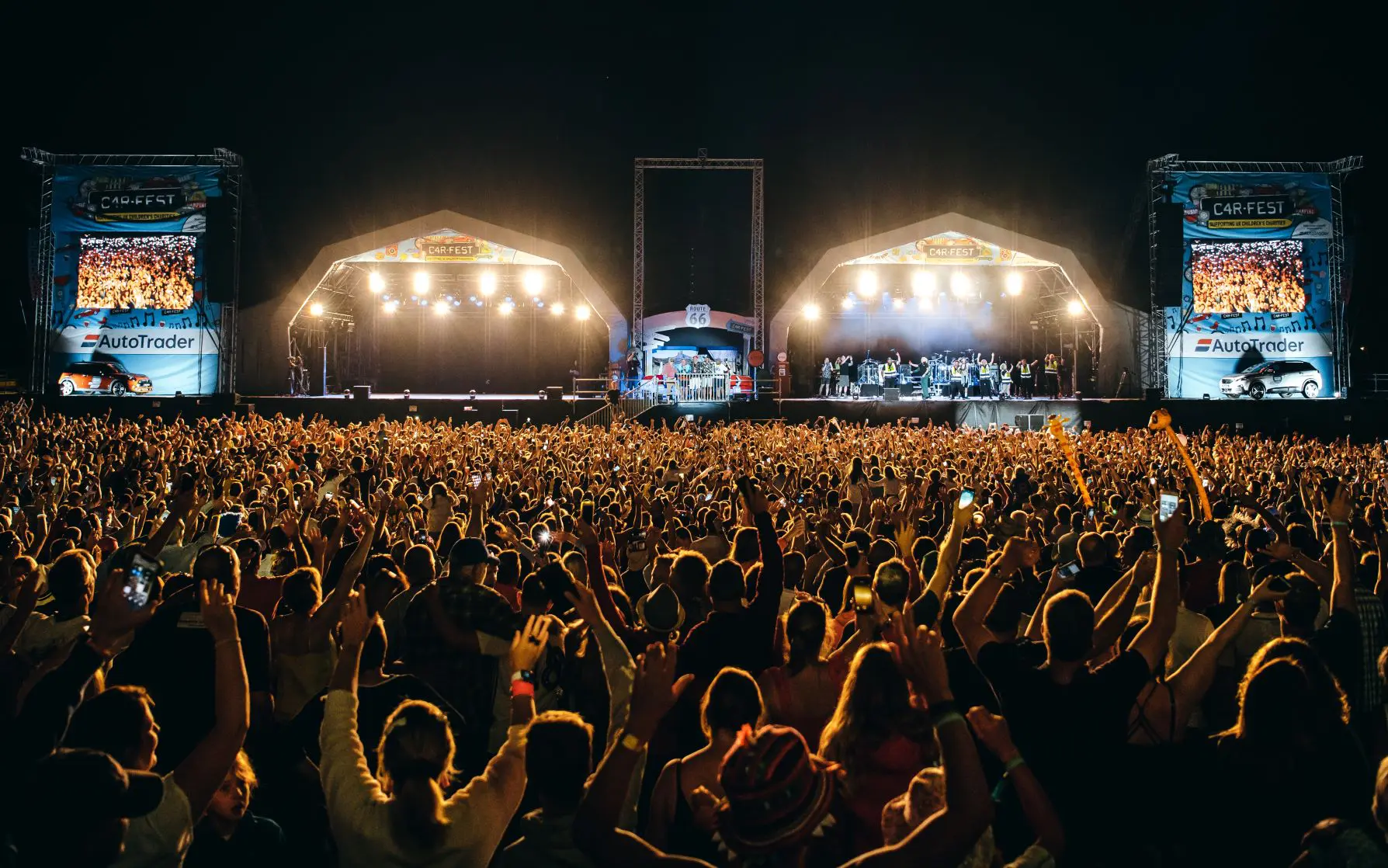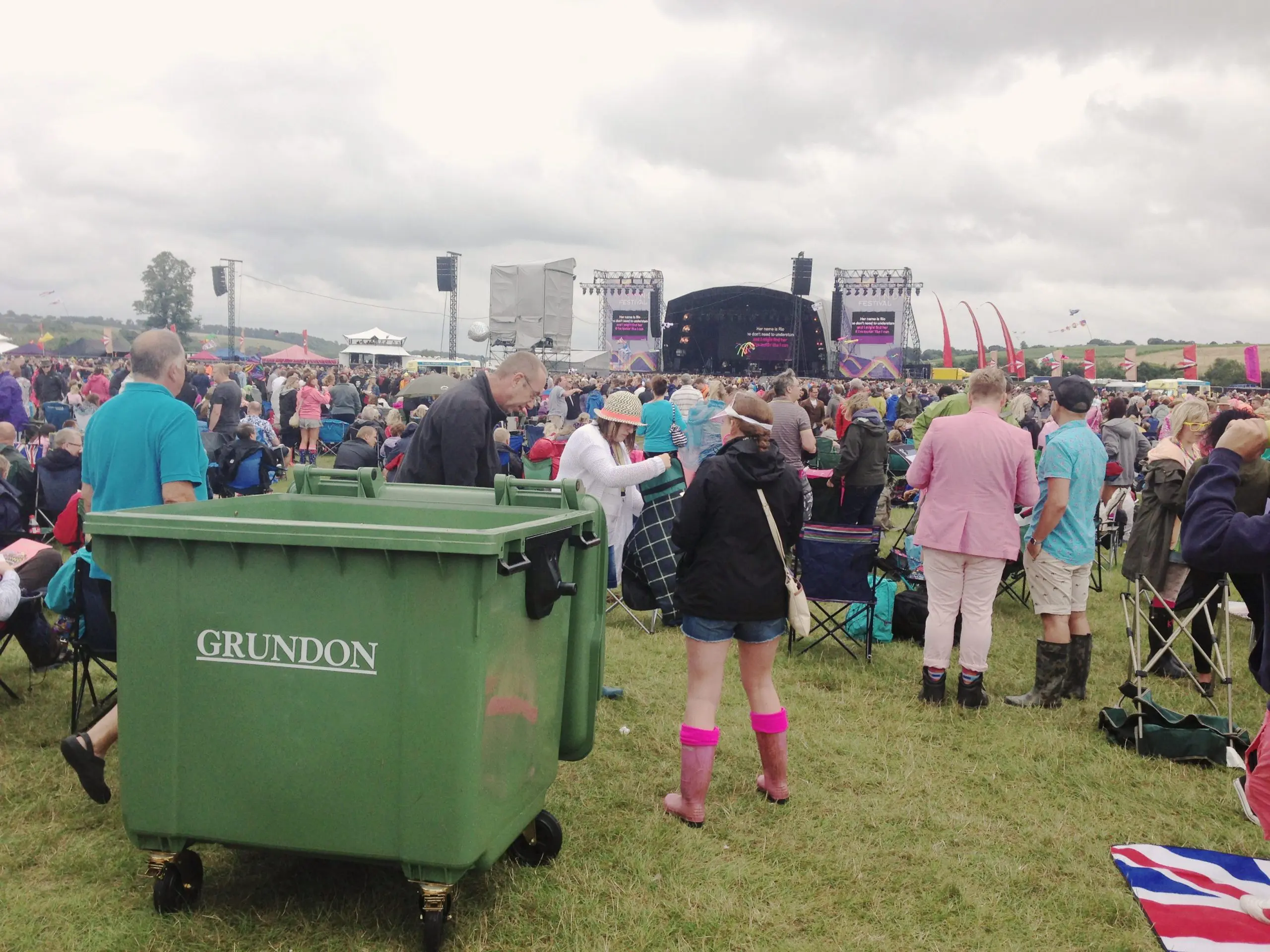
Providing event organisers with timely tips and simple advice that can make a difference, Grundon’s Steve Hill talks sustainability, goals, planning and good practice.
This summer promises an action-packed calendar as events and festivals finally return after a two-year covid-induced hiatus.
From huge sporting occasions such as The Formula 1 British Grand Prix at Silverstone to the family fun of CarFest South; from smaller county fairs to trade shows and exhibitions; there is one topic that the organisers need to think about in advance – how to manage their waste.
Step One – pre-event planning
The earlier you start to plan your event waste management, the more successful you will be in achieving your goals.
Start by appointing someone within your organisation to take responsibility for waste and decide what your goals are going to be. Typically, these may include:
It can help to break these down into ‘bite-sized chunks’ – don’t expect to deliver against all your goals in one season, decide your priorities and match them against your budget.
Make sure you have good channels of communication with on-site contractors, venue operators, suppliers etc., as they all play a vital role in getting waste management right.
Think carefully about the different types of waste you are likely to have on-site:

Managing your waste
Typically, options for managing your waste will be:
Choosing the right supplier
Appointing and working closely with a company that has experience in event waste management is a huge advantage, because its team can give you the best advice and share its expertise.
Some events choose to work directly with a waste management company, while in other cases it may be included within an event organiser’s services or in liaison with specialist cleaning companies. Whichever the approach, it’s important to work together and communicate well.
We always recommend asking plenty of questions, not least of which is making sure a company is a registered waste operator. That aside, typically you want to know:

Knowledge, experience and compliance
Using the knowledge and experience we’ve acquired over many years of handling waste for events, we can advise customers on the likely number of containers required (based on planned attendee numbers plus the number of food and drink outlets); how many on-site compactors will be needed; we look at the location of the venue and any access restrictions…basically we’ll be prepared for all eventualities – including the English weather!
We can also provide tips and advice, working with catering suppliers and providing signage and separate food waste caddies back-of-house to help segregate leftover or unwanted food. This can then go in special food waste bins and collected separately – because food waste is so heavy, keeping it out of general waste bins can actually save organisers money and it’s a greener approach too because it generates renewable electricity.
We don’t forget event visitors either – these days most people want to know how to recycle and they really value having simple, clear signage which directs them to bin stations or containers where they can leave their waste.
Having this level of help and understanding from a waste supplier is invaluable, and never more so than when it comes to compliance and legal responsibilities.
Take for instance an event with camping on-site, hazardous waste can include fridges, BBQs, aerosols and camping gas bottles. If disposal is handled incorrectly or by an unregistered operator, the authorities can impose a fine.
And remember…there are no second chances when it comes to events, you and your waste management provider have to get it right first time.
Step Two – during the event
By the time the big day dawns, everyone should know their responsibilities and everything should be in place.
Your waste management provider should be easily contactable in case of any last-minute changes (such as the larger than expected numbers of people or heavy downfalls of rain), and the on-site team should be checking on issues such as the need to empty full bins into compactors and/or make any changes.
Having eyes on the ground will also help ensure that useful information is recorded for future planning.
Step Three – post-event review
As soon as the event is over and the crowds have departed, the big clean-up swings into action. This will include removing both waste and containers from the site as smoothly and efficiently, returning the location to its original state as quickly as possible.
With the physical work completed, ask your waste management provider for a post-event review. The type of data you want to ask for will be:
With that information, your waste management provider should be able to tell you:
All these are vital statistics in helping to benchmark success, set new goals and assess where further improvements can be made.
And finally, don’t forget to share those successes with employees, contractors and suppliers – the better impression you make now, the stronger the platform to build on for the future.
Learn more about our dedicated Event Waste Management service, and speak to a member of our Special Events team today about how Grundon can make your event greener and save you money.
Call us on 08700 604 366 or email special.events@grundon.com
